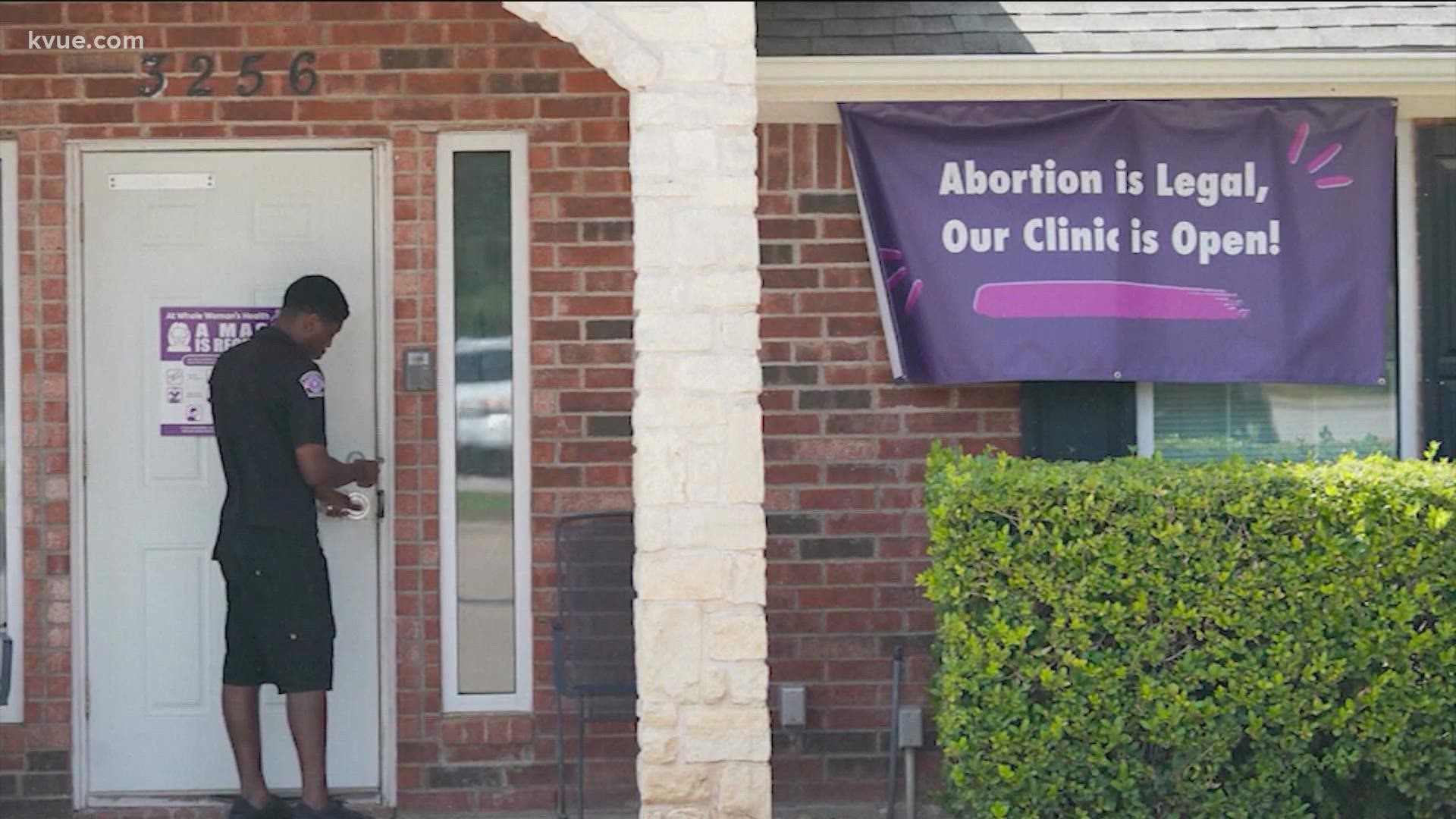AUSTIN, Texas — In the days leading up to the Texas Heartbeat Act becoming law, and in the days since, Texans have been calling abortion providers in neighboring states for help.
"Typically, every day we might take 15 or 20 calls, and of those calls, three to five might be Texas patients. The first two days, Aug. 31 and Sept. 1, so the day before [the Heartbeat Act] went in and the day of, we took 80 calls and probably around 50 to 55 of those were Texas patients," Zack Gingrich-Gaylord, from Trust Women Clinics, said.
Trust Women has a clinic in Oklahoma City, Oklahoma, and Wichita, Kansas. Data from the Centers for Disease Control (CDC) released in 2020 show the rate of abortions in Texas and its neighbors varies a bit.
Gingrich-Gaylord added it's not unusual to get calls from Texans because Texas and Oklahoma border each other. The spike in calls is what caught the clinic's attention.
"Access is not what it needs to be anywhere," he said.
The clinics' communications manager also noted concerns about other clinics in other states filling up – delaying how long it would take to get an abortion.
"The ripple effect here is really quite incredible, and it's just as as appointments go farther geographically out, right, and those clinics become more full, the time that it takes for people to arrange that sort of travel becomes more extreme," Gingrich-Gaylord said. "The resources that they need to pull together, whether that's child care or gas money or lodging or food, those sorts of expenses, they get higher and higher. And, of course, then the time of gestation. Right. That as you progress further along in pregnancy, the procedure itself becomes more expensive, it becomes riskier."
The new law allows for anyone in Texas to file a civil lawsuit against anyone who provides, or helps provide, an abortion after a heartbeat is detected. That can be about six weeks after becoming pregnant.
This week, the Supreme Court voted to allow the law to stand, for now. Attorneys have found it "clever" because it allows the public to enforce the law, instead of any employee of the government – such as police officers or district attorneys.
PEOPLE ARE ALSO READING:

